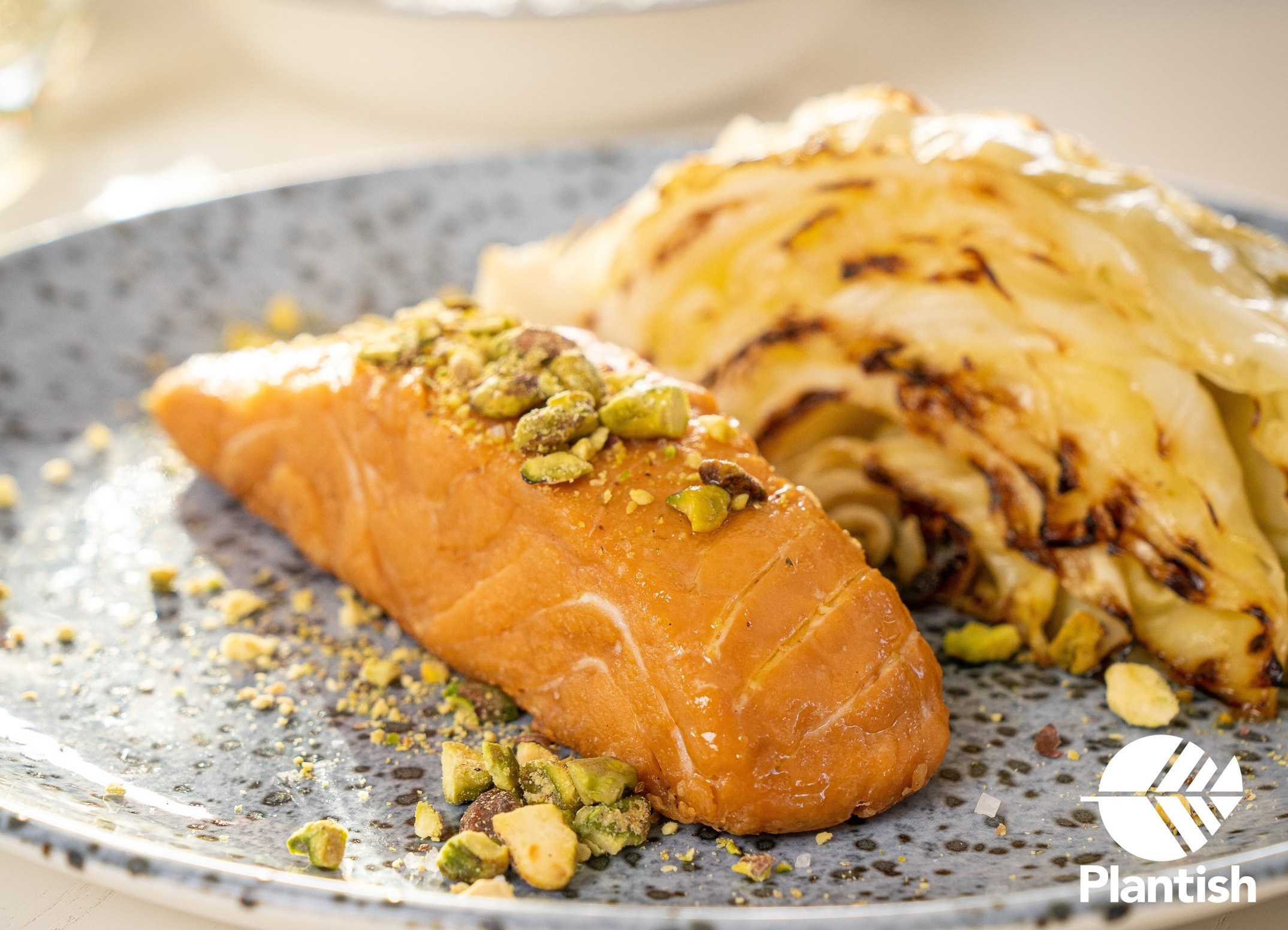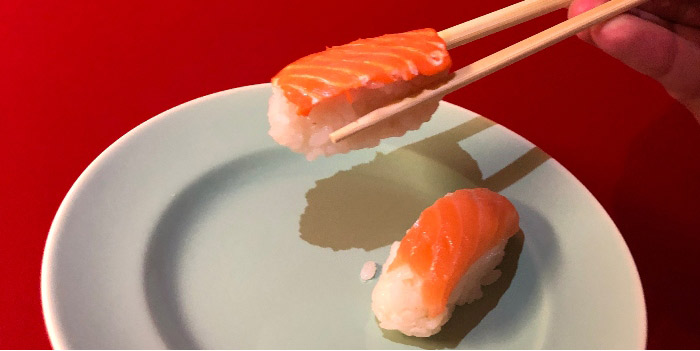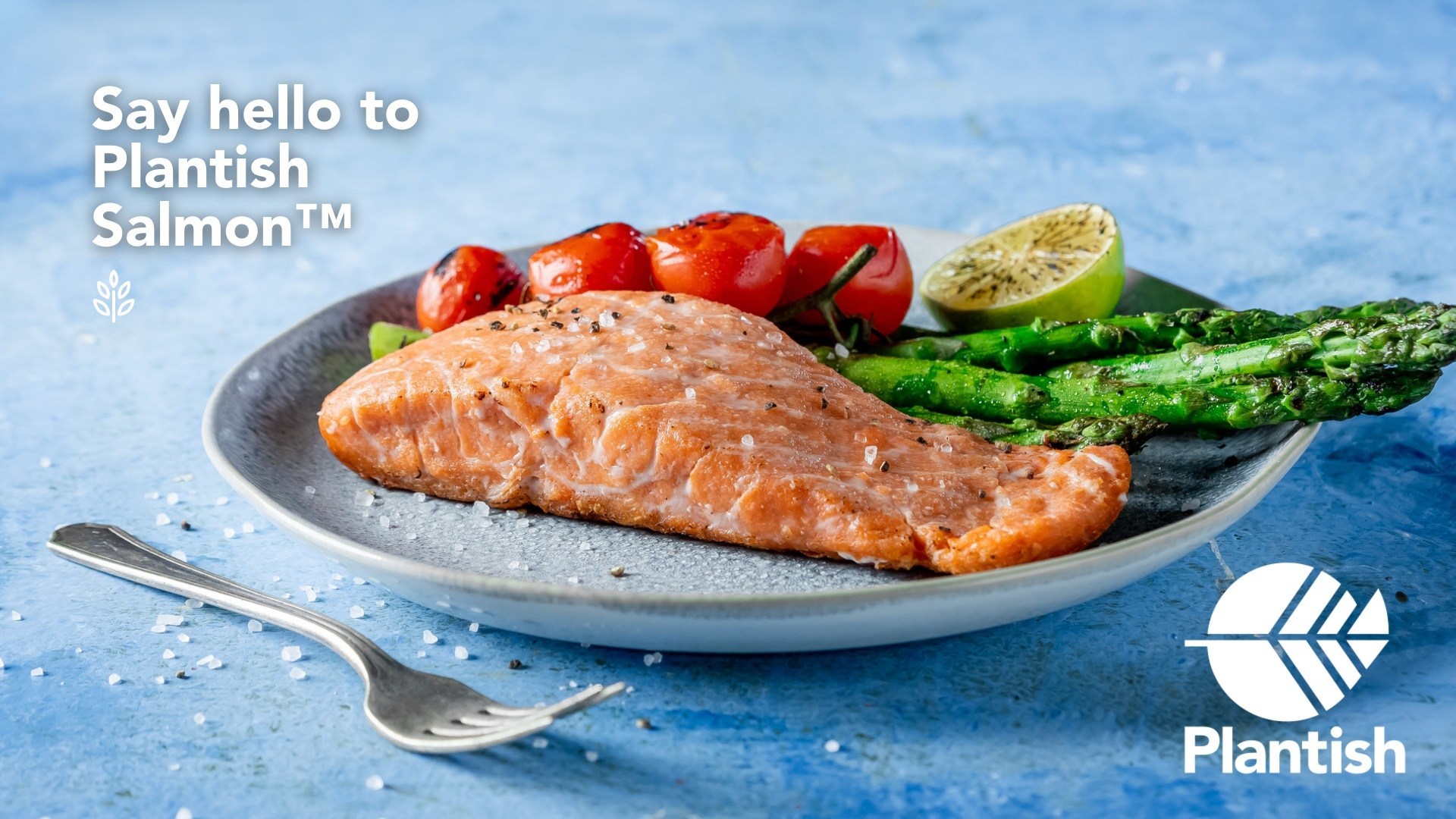Israeli 3D printing seafood start-up Plantish has raised $12.45 million in seed funding to bring its alternative seafood products to restaurants within the next two years.
The firm’s first plant-based seafood product is its Plantish Salmon, fabricated using a patent-pending 3D printing technology before being ‘cooked’ in the same way conventional salmon is prepared.
With the new funding, Plantish will look to accelerate its R&D efforts to further develop its products and build its team, before aiming to launch in fine dining restaurants by 2024.
“We’ve already seen it happen in the meat market, now it’s the time for fish,” said Ofek Ron, CEO and Co-founder of Plantish. “And in particular salmon, which accounts for $50 billion in the half a trillion dollar seafood market.
“The problem has been that fish is so difficult to replicate until now.”

3D printing salmon
According to Statista’s Fish & Seafood Report 2021, more than 70 percent of conventional fish is consumed in wholecut form across the globe, either as whole fish or fillets. The alternative seafood sector, however, mostly consists of minced fish options like fish fingers due to the challenges of whole-cut production.
While Plantish’s approach is novel, the firm isn’t the only player in the alternative seafood market leveraging 3D printing to create whole-cut salmon. Vienna-based start-up Revo Foods, previously known as Legendary Vish, has been developing its own 3D printed plant-based salmon for several years. In 2021, the firm debuted its product at a “world first” public tasting event and announced plans to create an automated 3D printing production line for its plant-based seafood products.
Plantish was founded midway through last year with the mission of saving the world’s oceans by offering plant-based, whole-cut fish fillets that are similar in taste, texture, and nutrition to conventional fish.
The start-up has developed its own patent-pending additive manufacturing technology specifically geared to the production of plant-based fish alternatives, starting with salmon. The firm deconstructed salmon to understand its different components, before using 3D printing to deposit super-fine layers of connective tissue and muscle tissue to create a plant-based salmon fillet.
Plantish Salmon reportedly mimics the taste, texture, appearance, and structure of cooked conventional salmon, while offering the same nutritional value in regards to high protein and Omega-3 content. The product can also be grilled, baked, poached, oven roasted, or charred, just as conventional salmon fillets can be.
With more and more of us seeking alternatives to conventional seafood products for environmental, health, and various other reasons, the start-up is aiming to become the “world’s leading seafood brand.”
“We love fish and are not trying to change what consumers want,” said Ron. “We are just offering a delicious upgrade to salmon that is safer for you and better for the planet.
“No antibiotics, no hormones, no mercury, no bycatch, and no compromise.”

Raising $12 million seed funding
The firm’s $12 million seed funding round was led by State of Mind Ventures and saw participation from Pitango Health Tech, Unovis Capital, TechAviv Founder Partners, Smart Agro, E2JDJ, Alumni Ventures, and OurCrowd.
The latest funding comes after the start-up raised $2 million in pre-seed funding in June 2021 from TechAviv Founder Partners and angel investors including Spanish-American celebrity chef and restaurateur José Andrés.
“Cracking wholecut seafood is the next big opportunity in our quest for impact and sustainability,” said Merav Rotem Naaman, General Partner at State of Mind Ventures. “When we met the world-class team at Plantish we knew that they had the passion, vision and capability to pull off the seemingly impossible task of producing a true upgrade to fish.”
Plantish will direct the new funds into building its team and carrying out further R&D to accelerate the development of its products. Going forwards, the main goal for the start-up is to enter the foodservice market and get its products into restaurants by 2024. In the meantime, Plantish will be debuting its 3D printed salmon at pop-up locations at the end of this year.
“We understand that over 60 percent of seafood is eaten outside the home, and salmon is among the most popular fish and animal protein in the world,” added Ron. “Therefore we are focusing our efforts on the foodservice route and you can expect to see us in fine dining restaurants within the next two years.”

Israel’s blossoming 3D printed food market
Israel has become a hub for 3D printing food start-ups in recent years, with numerous firms vying for a market share of the emerging sector.
Armed with the vision of becoming the “world’s largest alt-meat company” by the end of the decade, Redefine Meat has already commercialized its food 3D printing technology in several markets. The company launched its first series of ‘New-Meat’ products to selected restaurants and hotels in Israel in July last year, before rolling out its plant-based food products to high-end restaurants throughout Europe in December.
December also saw MeaTech announce the latest milestone in its quest to develop sustainable cultured meat products using 3D bioprinting technology, having printed its largest steak yet weighing in at 3.67 ounces.
Fellow 3D printing food start-up SavorEat, meanwhile, teamed up with global hospitality firm Sodexo last year to pilot its Robot Chef food 3D printer at select universities in the US as it edges towards commercializing the system and its first alternative meat product.
Subscribe to the 3D Printing Industry newsletter for the latest news in additive manufacturing. You can also stay connected by following us on Twitter and liking us on Facebook.
Looking for a career in additive manufacturing? Visit 3D Printing Jobs for a selection of roles in the industry.
Subscribe to our YouTube channel for the latest 3D printing video shorts, reviews and webinar replays.
Featured image shows Plantish salmon is nutritionally similar to conventional salmon, and is high in protein, Omega-3s, Omega-6s, and B vitamins. Photo via Shahaf Beger.


